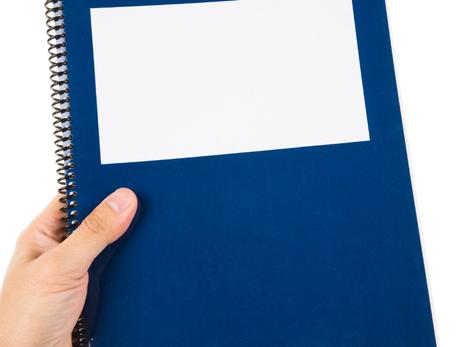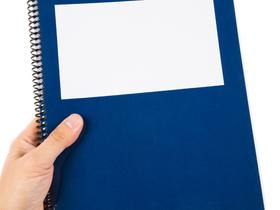A private school handbook is essentially a set of guidelines for life in the school community. The reason why I am devoting an entire article here on Private School Review is to underscore the importance of handbooks. Both you and your child need to understand that the school's handbook is linked to the contract which you signed with the school. Private schools are not like public schools in this very important regard: students have rights in a public school; but they do not have rights in a private school. They are governed by what is known as contract law. That contract which you signed with the school spells out all the obligations of the parties to that contract. Somewhere buried in the fine print will be a statement to the effect that one of your child's obligations is to abide by the rules and regulations of the school and its community as set forth in the school's handbook and elsewhere.
Most handbooks are comprehensive, very detailed documents which seek to cover every conceivable aspect of school life. They are generally rather lengthy documents too as you will see when you review the examples listed at the end of this article. Take time to review your school's handbook. Discuss and confirm that your child understands the seriousness of this document. While the school will explain the content of its handbook at the beginning of school, assume nothing. Make sure that she understands that failure to abide by the terms of the contract and the rules and regulations set forth in the school handbook can and will have serious consequences. Her feigning ignorance of the rules and regulations will not wash. She and you her parent will be held accountable. Serious consequences? Expulsion heads the list of serious consequences. Another unwelcome consequence is not being asked back next year. Remember: admission to a private school is one hurdle to clear. Then you have to maintain your standing at the school in order to be asked back for subsequent years. Have that heart-to-heart with your son before he sets foot in the school. The sooner he understand the school's rules and regulations as contained in the handbook, the better.
Handbooks outline guidelines.
They are not contracts. When you send your child to private school, you sign a contract clearly spelling out your obligations and the school's obligations. That contract is a binding legal document. Unfortunately it is one of those documents with pages of fine print that you file carefully in a safe place. That's where the handbook comes in. The handbook covers the day to day rules, policies and procedures which you and your child must adhere to and abide by while part of the school community. The handbook usually explains the rules, policies and procedures in great detail. "I didn't know that!" will be an unacceptable reason for breaking the rules because every student is expected to read, know and apply the material contained in their school's handbook.
Many school handbooks are online.
Depending on the school, the access may be password protected and limited to current parents and other members of the school community. Some schools publish their handbooks without password protection. They are not concerned about security. They want anybody to see their policies and procedures. Expectations are better set if that important information is out there in full view. Most online private school handbooks are in PDF format. It is extremely difficult to alter PDF files. They also are easy to print out if a hard copy is necessary.
The purpose of a handbook.
Handbooks serve several purposes. They explain rules and regulations, policies and procedures. They also detail the consequences for not adhering to those policies and procedures. A handbook is written to ensure the smooth, safe running of the school and its community. The school is responsible for your child's safety while he is at school or involved with school-related activities such as sports and other school activities held off campus.
Handbooks explain school rules and regulations.
One purpose a good school handbook serves is to explain policies. For example, if the school issues report cards 3 times a year, the handbook will stipulate when and how the report cards are issued.
Boarding schools list their weekend policies in their handbooks. If you want to take a weekend away from school, your parents need to communicate their permission to the school. Your daughter cannot decide that she wants to spend the weekend in Boston without your knowing.
One of the reasons schools have strict, well-enforced policies and procedures is because they take their role of surrogate parent very seriously. That's one of the things a parent pays for when he sends his child off to private school: safety and security.
Take medications, for example. Most schools will not allow students to have medications with them while at school. All medications will be under the control of the school nurse/medical office who will administer them according to the strict instructions which your doctor has given the school.
Another aspect which most handbooks address is conduct while at school but off campus. Let's say your daughter and some of her classmates are permitted to walk into town. Their behavior must follow the school's guidelines even though they technically are not on school grounds. You know how teenagers bridle against restrictions and rules. That may well be, but make sure that your daughter totally understands that she must be on her best behavior. The first townie who sees a group of St. Swithin's girls creating a disturbance will report it to the school. And we don't want that to happen.
Consequences for not adhering to those policies and procedures. Each school sets its own guidelines. You should review the handbook of any school to which you plan to apply simply because you may have differences of opinion about how certain things are handled. Better to know before you get involved rather than after something happens when your child is at school.
Discipline codes usually have an escalation path depending on the severity of the infraction. You need to understand that the school will not hesitate to invoke its right to discipline your child if its disciplinary processes deem that necessary. If you don't approve, your option is simple: withdraw your child.
If this all sounds hopelessly rigid and uncompromising, perhaps it is. But then so are the many rules, regulations and laws by which we adults must comport ourselves on a daily basis. The best time to teach compliance and the consequences for non-compliance is when children are young.
Examples of school handbooks
- Lawrenceville School
- Middlesex School
- Miss Porter's School
























